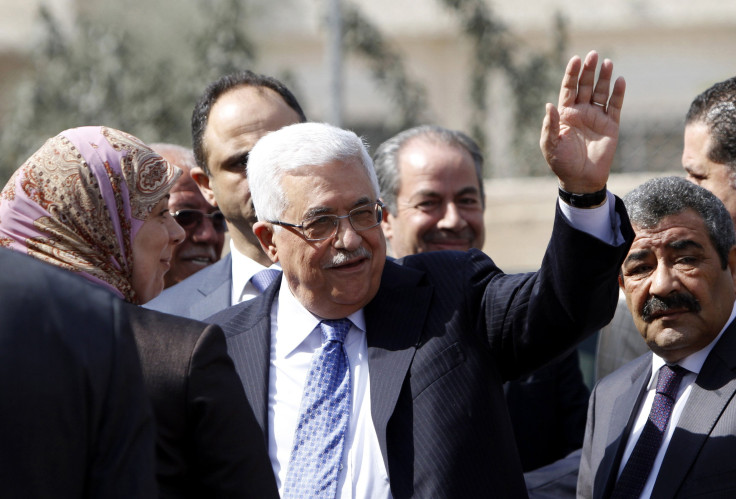Israel-Palestine Peace Talks Can Still Proceed After UN Status Upgrade: Abbas

Palestinian National Authority President Mahmoud Abbas said Wednesday that he would engage in peace talks with Israel if the United Nations granted Palestine status as a non-member state.
For more than a year, Abbas has sought to elevate Palestine’s status in the UN; it is currently an "observer entity." In 2011, he lost a bid for recognition as a full member state. Now, he seeks an upgrade to "non-member state," a smaller boost that would nonetheless advance the cause of Palestinian sovereignty.
Israel and its ally the United States argue that Palestinian statehood can only come about through bilateral talks, though such efforts have failed for decades.
Abbas’s statement on Wednesday implies that the two avenues of change are not mutually exclusive.
“We have resolved to go to the U.N. to save the two-state solution and to achieve the rights of our people as an observer state,” he said, according to Reuters.
“We're ready to go back to negotiations straightaway. Going to the U.N. is not a substitute for negotiations. We are in need of negotiations to solve the final status of issues that face us both.”
Palestinians have pursued several avenues toward independent statehood over the years, but to no avail. One oft-cited goal is the establishment of a permanent Palestinian territory along the borders that existed before the 1967 Six-Day War between Israel and its Arab neighbors.
Such an agreement would give Palestine the West Bank, a kidney-shaped, 2,270-square-mile area bordering Jordan; and the Gaza Strip, a 141-square-mile territory along the Mediterranean Sea.
But for decades, the Israelis have been planting settlements all over the West Bank, which is nominally administered by Fatah, the political bloc that currently heads the Palestinian National Authority. These settlements continue to advance deeper into the territory, threatening the prospect of a permanent, viable Palestinian state there.
Divisions within Palestine also complicate prospects for sovereignty. Though Fatah controls the West Bank, the militant Hamas rules Gaza.
Hamas is considered a terrorist group by the United States, Israel and the European Union. Its leaders have called for the destruction of Israel, and its militants have launched rocket attacks onto Israeli territory for years. Many Palestinians support Hamas for defending Arab interests in the region and implementing extensive social welfare programs in the territories.
Facing a defiant Hamas and stalled bilateral talks, Abbas and his Fatah bloc have little chance of making headway toward Palestinian sovereignty anytime soon. But Abbas hopes that a U.N. status upgrade would get the ball rolling.
“The aim is not to isolate Israel, but to secure international recognition that would facilitate negotiations,” he told the Palestinian news agency WAFA.
© Copyright IBTimes 2024. All rights reserved.












